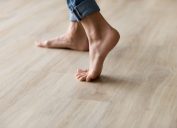6 Ways Your Shoes Are Ruining Your Feet—And How to Fix It
These common mistakes can cause pain, swelling, deformities, and more.
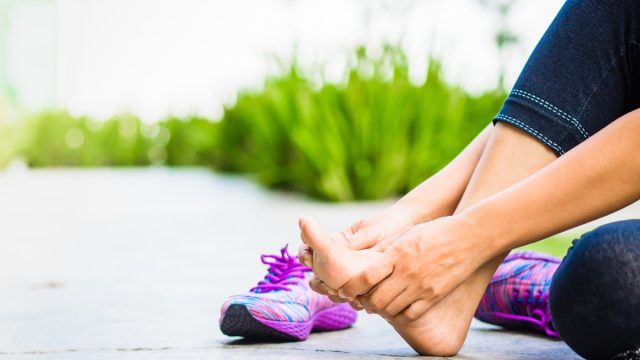
Any time you go shoe shopping, style should be only part of the equation—it's also crucial to consider how your feet feel. That's because many types of shoes can deal serious damage to your foot health if you're not careful in your selection, podiatrists say. In fact, they warn that there are several common mistakes you could be making that are wreaking havoc on your feet—and by the time you spot the problem, it may be too late for an easy solution. Wondering which mistakes could be causing permanent problems? Read on to learn the six ways your shoes are ruining your feet, and how to fix them.
RELATED: I'm a Podiatrist and I'd Never Wear These 3 Pairs of Shoes.
1
Tight shoes can cause or worsen bunions.
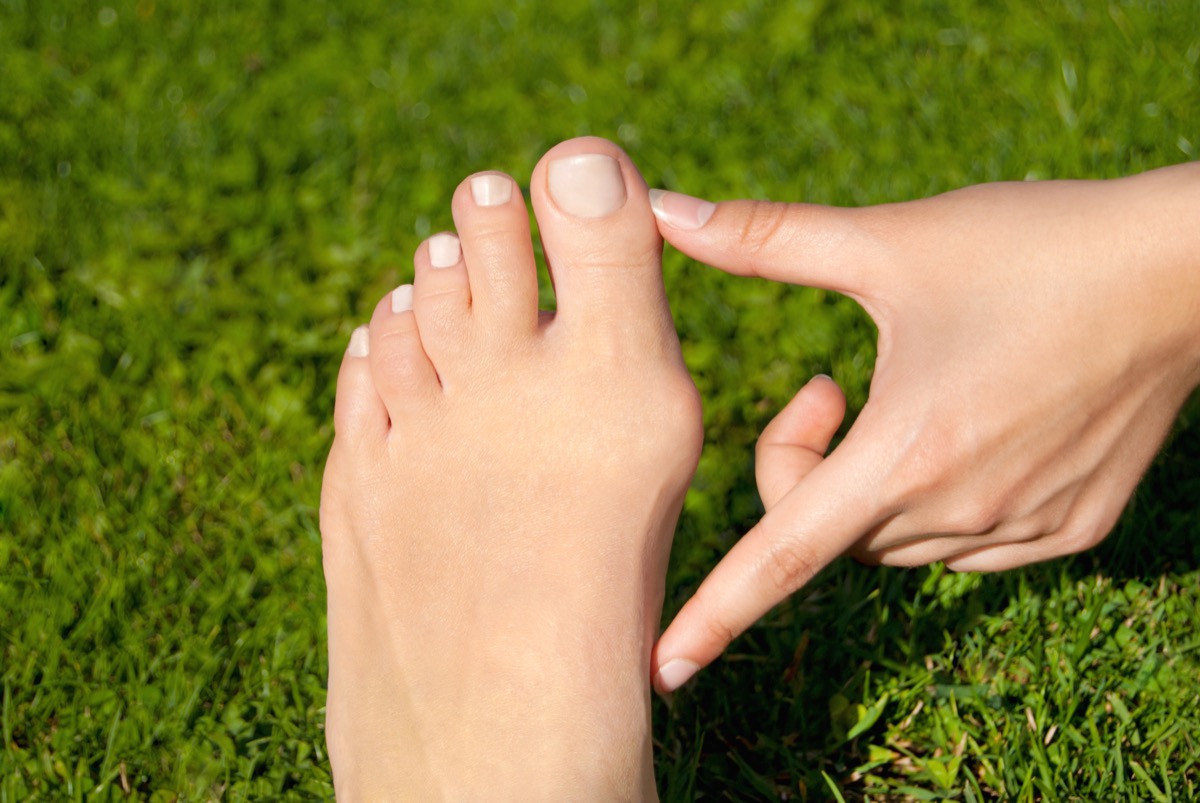
A bunion is a bony protrusion on the joint of your big toe—and unfortunately, once it forms, a bunion will typically continue to grow and worsen without corrective surgery. According to Julie Schottenstein, DPM, a podiatrist and founder of the Schottenstein Center, one of the most common causes of bunions is overly tight shoes.
Ill-fitting footwear can also worsen pain if you have already developed bunions. "If shoes are too tight and have materials that don't stretch, they may put a lot of pressure on a bunion," Schottenstein explains.
2
They can also cause a spur on the toe joint.
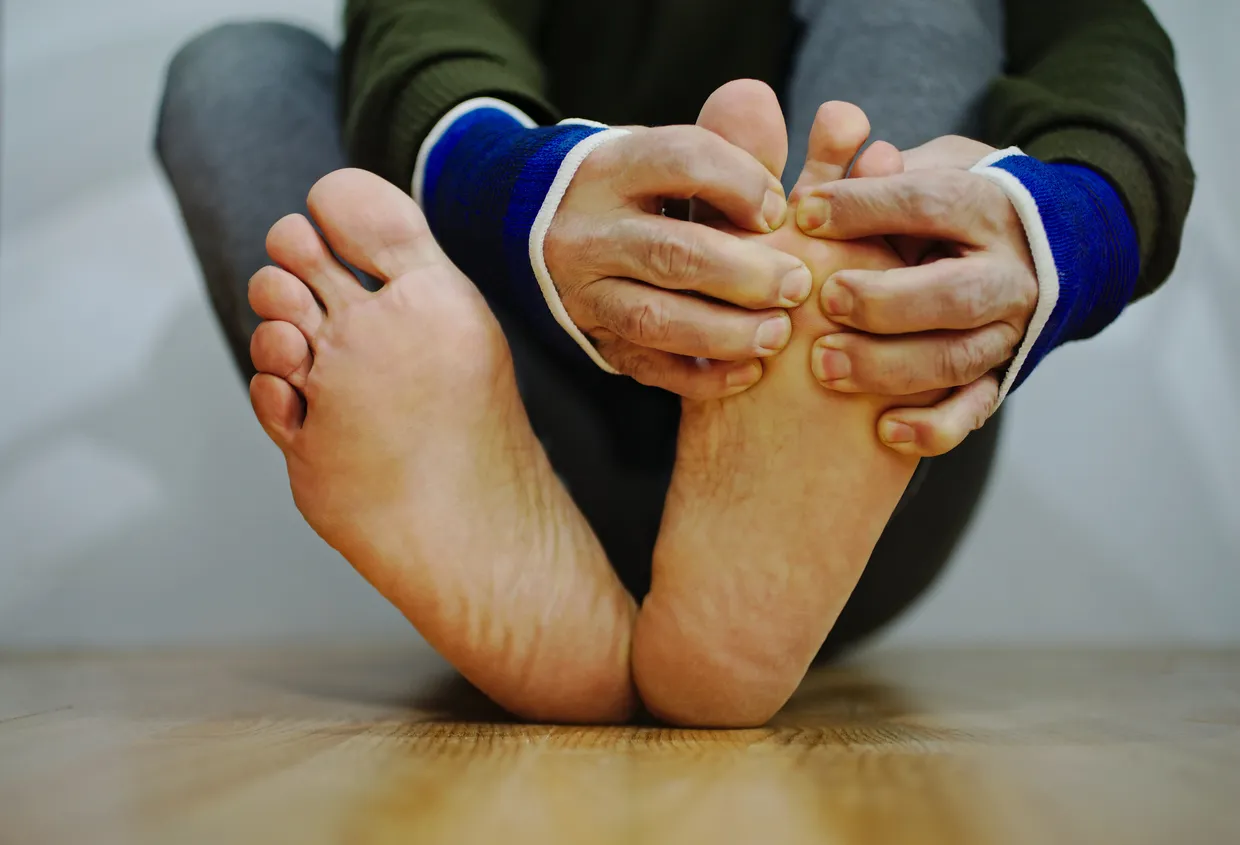
Similarly, tight shoes can also cause bone spurs if the wearer develops arthritis in their toe joints. "This can cause irritation, swelling, and pain," says Schottenstein.
To combat this problem, the podiatrist suggests switching to shoes with a wider toe box, wearing protective pads over any prominences, and choosing materials such as mesh, which will be stretchier and less constrictive over these areas. "A finger breath's distance between your longest toe and the end of the toe box is a good barometer for fit," she notes.
RELATED: 5 Signs You Need to Toss Your Walking Shoes, Podiatrists Say.
3
Poor arch support can cause plantar fasciitis and Achilles tendinitis.
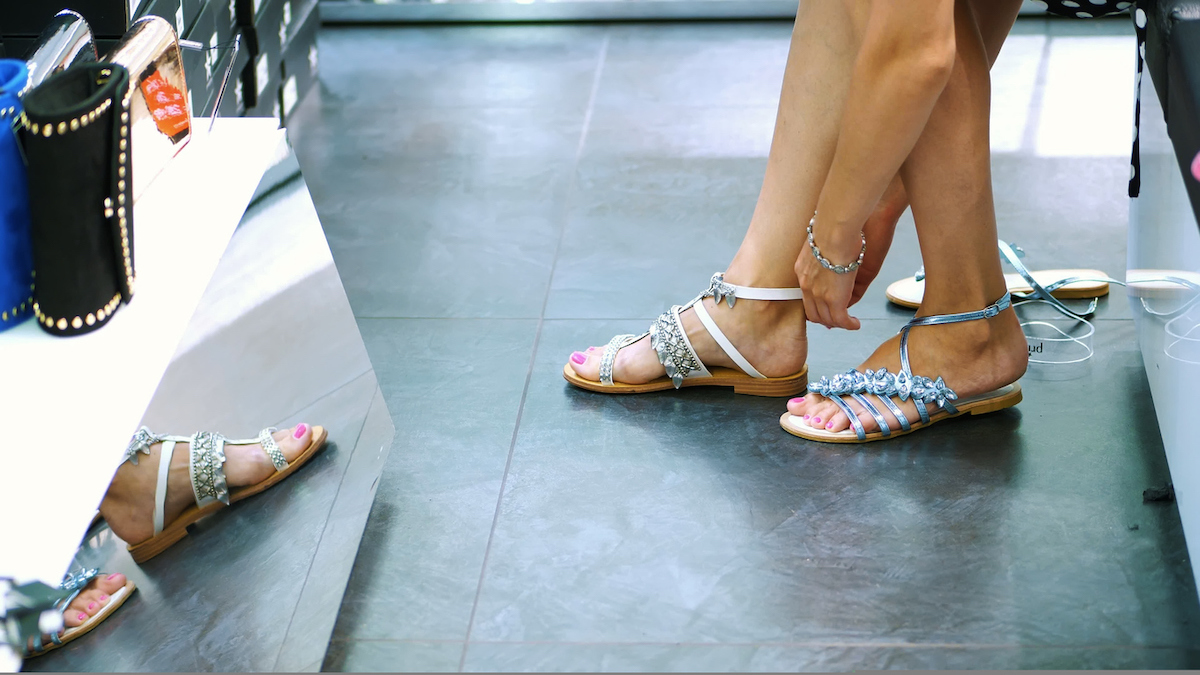
Shoes with poor arch support can also ruin your feet by leading to plantar fasciitis (heel pain) and Achilles tendinitis (inflammation in the Achilles tendon). Schottenstein says this is especially common when people wear "zero drop" shoes in which the back of the shoe is the same height as the front. "This can put a lot of strain on the plantar fascia and Achilles tendon," she tells Best Life.
One way to avoid this problem is to use orthotic inserts and wear shoes where the back is higher than the front. "Consider custom orthotics to replace your prefabricated insoles for better protection and pain reduction," suggests Jason Rubin, DPM, D. ABFAS, a podiatrist with Rubin Foot & Ankle Center.
4
Poorly cushioned shoes can cause stress fractures.
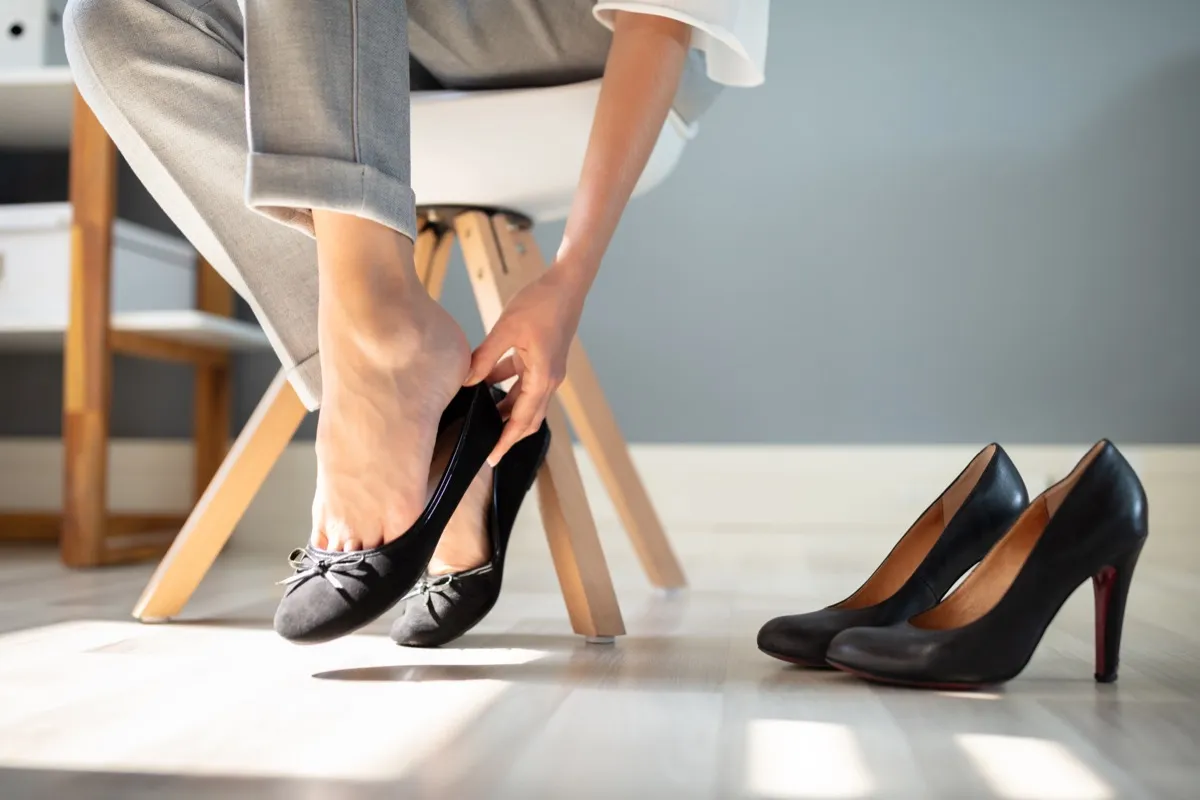
"Shoes with insufficient cushioning, especially high heels with no cushioning under the ball of the foot, can contribute to stress fractures," Schottenstein warns.
The doctor suggests using memory foam or gel pads under the ball of the foot to cushion this area. "Additionally, look for shoes that have less of an acute pitch from the ball of the foot to the heel to help avoid excessive pressure in this area that can build up and ultimately result in these kinds of injuries," she advises.
RELATED: 10 Best Tips for Wearing Heels Over 65 From Doctors and Style Experts.
5
Tight shoes can cause ingrown toenails.
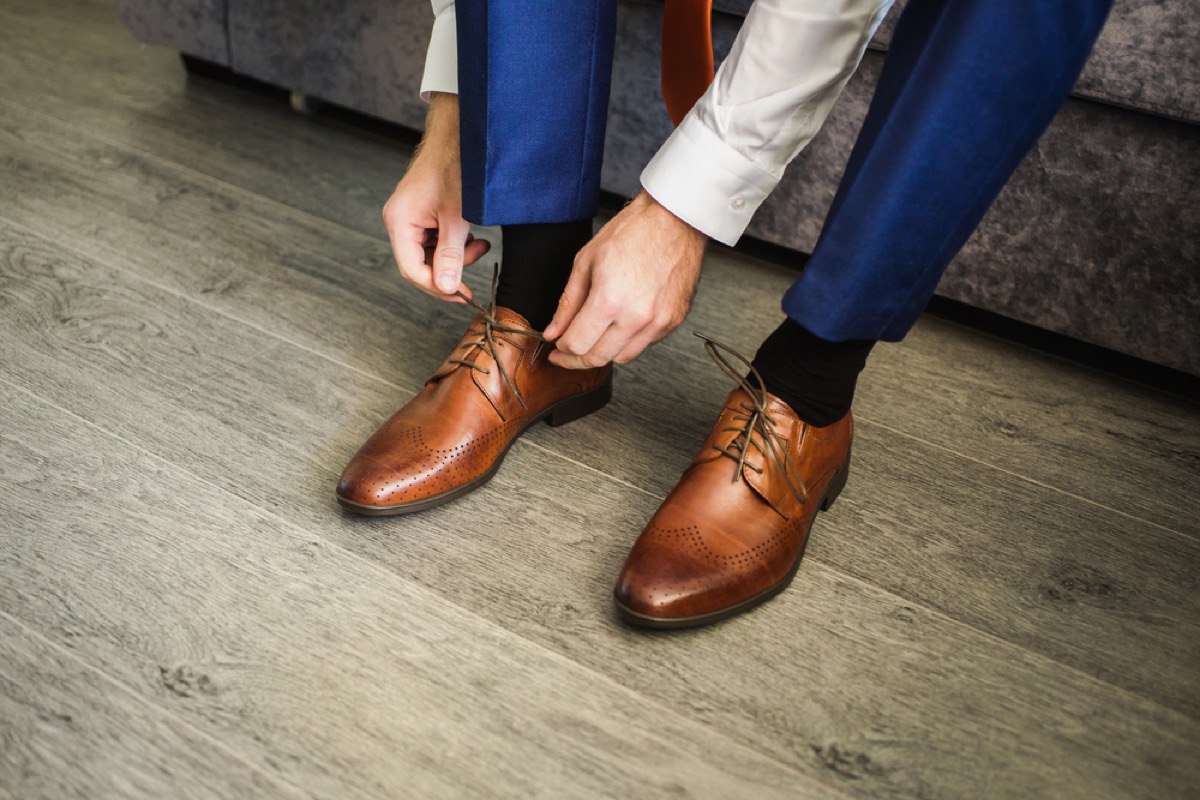
Shoes that are too tight or narrow can also cause ingrown toenails and other surface injuries to the feet and toes. Schottenstein suggests opting for a shoe that's wide in the toe box, which will help reduce pressure on the area.
Rubin agrees that if you're prone to these types of injuries, you should opt for protective footwear. "Consider diabetic shoes even if you are not diabetic to help prevent wounds," he suggests.
6
Tight shoes and shoes with tight ankle support can cause swelling.
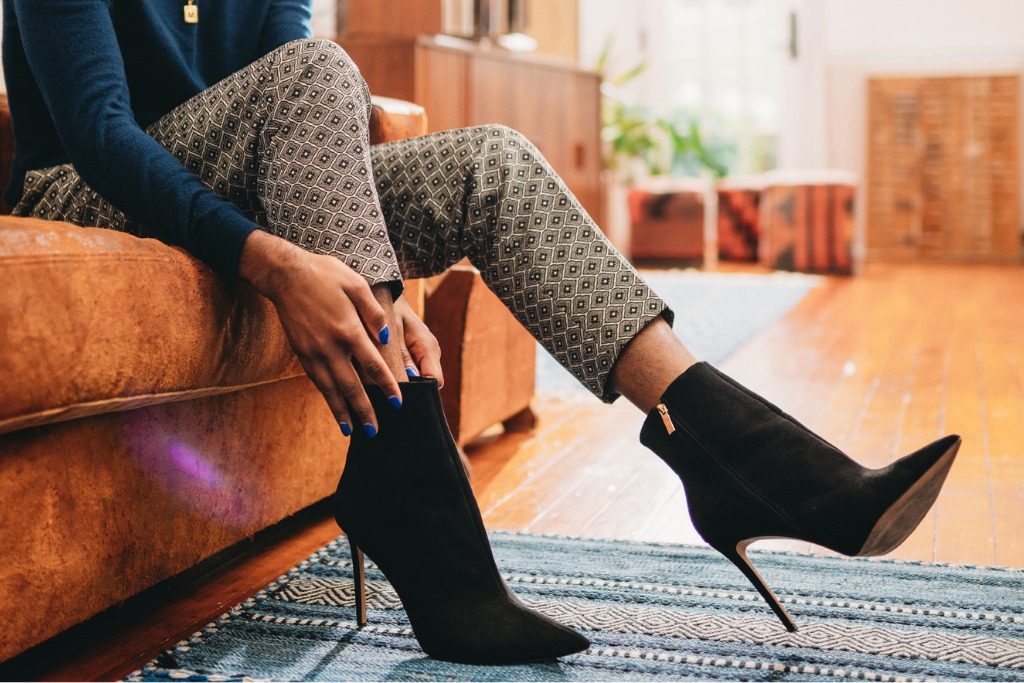
Your shoe selection can also cause swelling or edema, experts warn. "Tight-fitting shoes might cause swelling and aches in the ball and heel of your feet. Shoes with tight ankle support can lead to swollen ankles and reduced circulation," explain the Foot Specialists of Birmingham.
The good news? Roomier shoes can help reverse the problem, Rubin says: "If your feet get swollen, get double-depth shoes."
For more wellness advice sent directly to your inbox, sign up for our daily newsletter.


